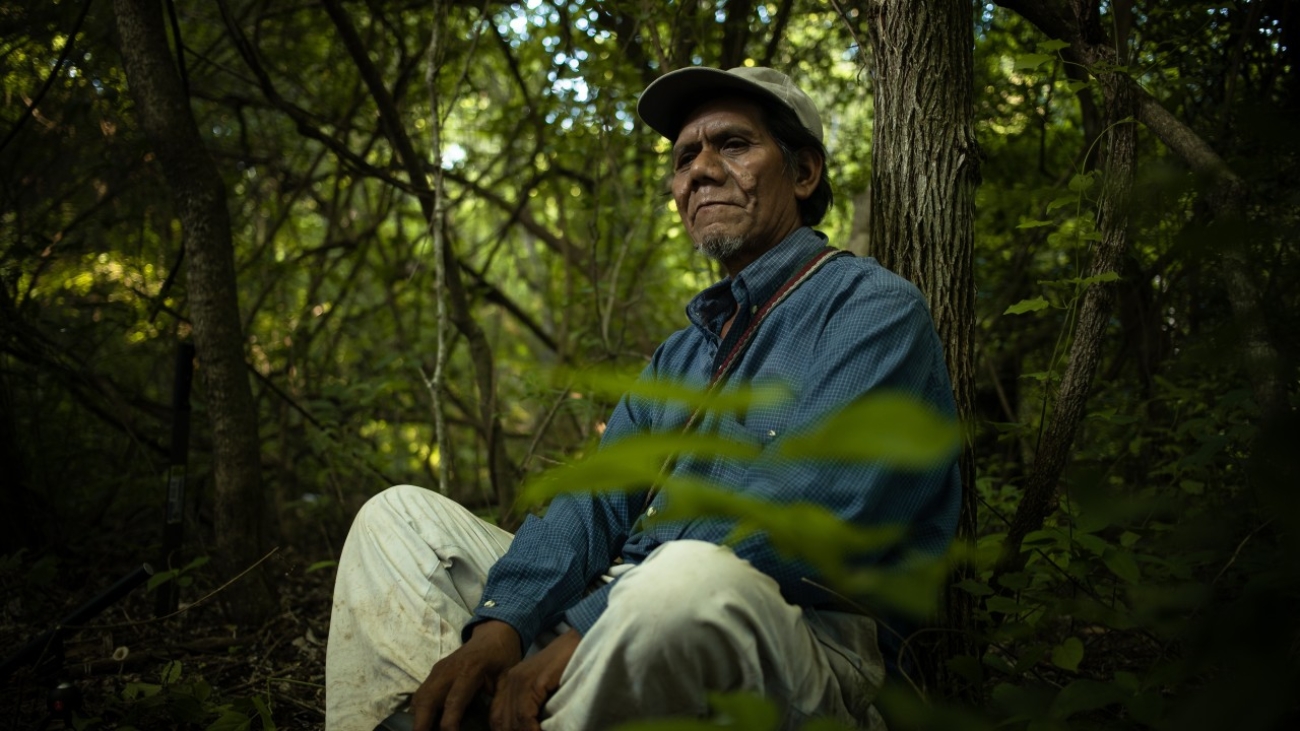Nearly a decade ago, in the city of Tartagal, on the edge of Argentina’s Chaco region, I met Juayuk. I was meant to leave the next day, but accepted his invitation — unaware that this encounter would forever change the way I relate to the world.
Juayuk barely spoke. In truth, he had spent years in near-complete silence. Not as a form of spiritual retreat, but due to abandonment. His people, the Wichí, live from and for the forest. But logging, the advancing agricultural frontier, and institutional neglect had devastated not only the trees, but the sacred bonds his community shared with the land.
“My brothers are gone… Those of us who remain no longer live from the forest as we once did. Only I still listen to the mothers of the trees,” he told me.
His community is small, secluded down a dirt road that becomes impassable with rain. It lies at a magical ecological junction — where the lush Yungas rainforest fades into the dry Chaco woodlands. This mosaic is home to century-old guayacanes, cedars, molles, algarrobos, and urundeles: a paradise for any botanist… or any logging truck.

Juayuk tried to protect the forest the way one protects an ageing mother. When chainsaws arrived, he confronted the workers with soft words, begging them to spare the “mothers” — the great seed-bearing trees that sustain the forest’s future. For a while, this fragile negotiation worked. But eventually, as money pressures mounted, even these sacred trees fell.
Still today, Juayuk enters the forest before dawn each morning. He moves like a bee, pollinating life. He says the forest is a choir: birds converse among themselves and with him; winds carry ancestral whispers; the trees sing messages through their roots. He listens to what most of us have forgotten — or chosen not to hear.
As an anthropologist, I confess that I didn’t understand him at first. I saw his way of speaking with the forest as metaphor — a poetic form of resistance. What a narrow, impoverished perspective mine was. From a Western scientific framework, anything unverifiable tends to be dismissed. It took time — and humility — to realise that I was in the presence of a system of knowledge as sophisticated as any ecological theory, expressed through song, silence, and sacred practice.
I’ve learned more from Juayuk than from many books. His ancestral wisdom, far from being a relic of the past, offers a necessary compass for our collective future. In a time of climate crisis and ecological collapse, perhaps the most radical thing we can do is pause — and listen. To the forest. To Juayuk.

